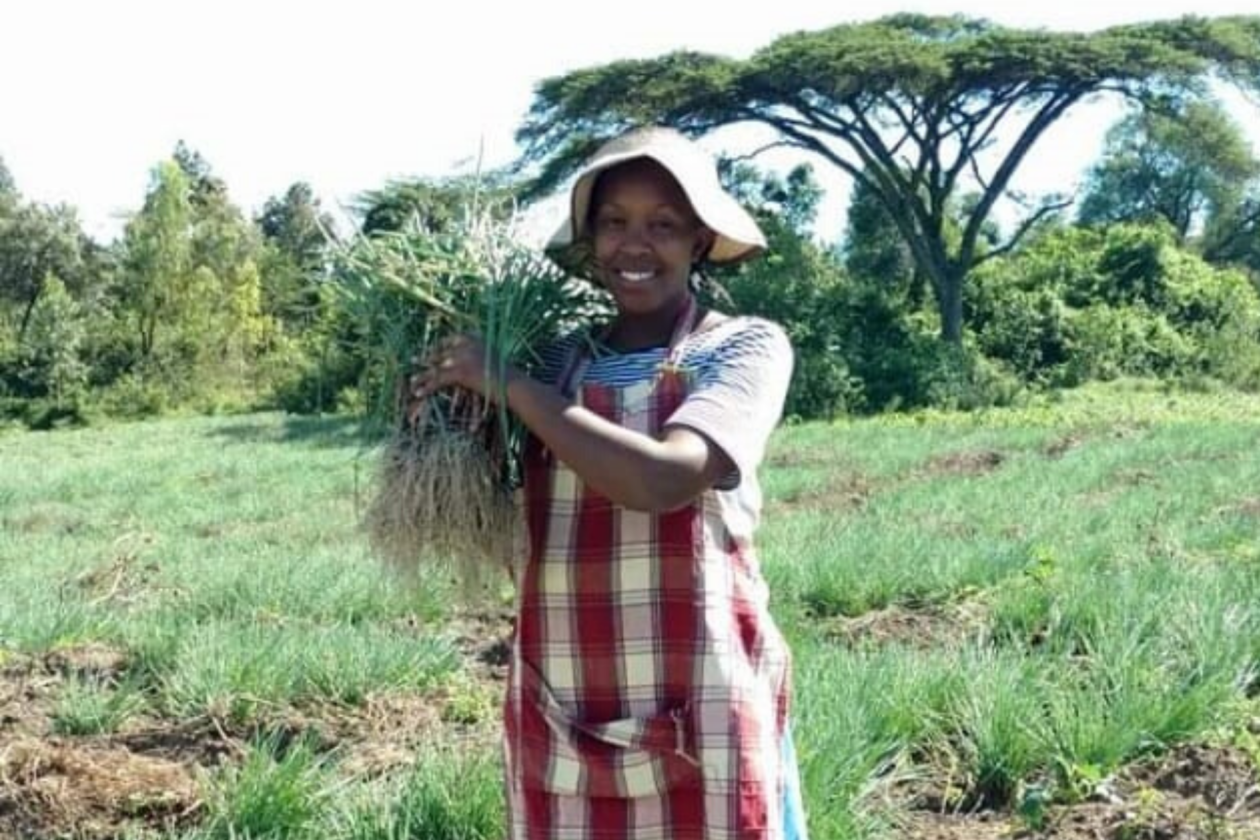
Climate change is one of the most pressing threats humanity has ever faced, and to address the warming world and devastating impacts it it clear that we need each and every person on Earth to act now. Women are essential in this fight, as they experience climate change in unique ways, and offer an important perspective when it comes to effective solutions.
In recognition of the power of women, we’re introducing a series of interviews with women in our global network to collect their thoughts on activism, climate change, and how to take care of yourself in a warming world. Hailing from different parts of the globe, their perspectives differ, yet they are united in their mission to protect our planet for generations to come.
Meet Naomi Lanoi Leleto, a Maasai woman from Narok, Kenya who is the Program Coordinator for Global Indigenous Grantmaking at Global Greengrants Fund and Coordinator for the East Africa Advisory Board. You can read more about Naomi here.
Here’s Naomi’s story:
As a young girl, I refused to go through “the cut” – also known as Female Genital Mutilation. This got me into trouble with my family. Standing up for my rights and fighting the retribution that followed ignited an agency in me. After high school, I started working with local women on their beadwork, where they shared their struggles on how climate change led to increased domestic violence in their homes. In Kenya, climate change, land privatization, and environmental degradation have led to a weakening and collapse of Pastoralist livelihood systems, along with recurrent droughts and loss of livestock. Men are feeling a diminished sense of control of their surroundings, the frustration resulting in the abuse of women in their lives. With these experiences, I joined local and international Indigenous Movements and became a voice for our grassroots communities.
Why do you believe that we need women in the fight against climate change?
Women are the most affected by climate change. They face a higher risk and a greater burden from the impacts of climate change. As caregivers, they walk long distances to fetch water and firewood, they grow and produce food, and they milk cows and feed their families. They have knowledge and understanding of what is needed to adapt to changing environmental circumstances in order to determine practical solutions for their households. These sustainable practices that help them respond to climate change are derived from local wisdom of the rivers, forests, soils and even animals. We are beyond mitigation and now have to adapt to the effects of climate change.
What gives you hope?
There are people who are so committed to make a change in society. You don’t need money to make a change: you need strong goals and passion. Through advocacy, Indigenous People are no longer invisible to the world. I would advise others to illuminate from within. How many trees have you planted in your home before advocating for tree planting in other areas? How many climate change policies have you influenced in your village or country before appearing in international spaces to demand for global action against the climate crisis? Action starts from within.
How does your passion for this cause impact your day-to-day behavior and decisions?
I can’t preach water while I drink wine. What I advocate for must be what I practice and live for. It is also important to educate yourself through media and people on current affairs: you have to know what is happening around you to make meaningful impact. You can’t fight or support what you don’t know: knowledge is power. Learning and sharing is very critical for me and my work.
How do you recover after a long day of activism?
I have my family to share and engage with. But let’s be realistic, there are only so many hours in a day. And if you want to pursue meaningful activism while balancing a career, you have to acknowledge that you can’t try to change everything all at once. I love farming and try to keep sane by working in the farm most evenings. I also have my grassroots women connections. They sometimes visit me without any appointment, as is the norm in our African society. That distraction is a good excuse to be away from the computer. I also like reading and watching the birds in my compound.
What’s your favorite book?
I like reading African content. I am currently in the 9th series of The No. 1 Ladies Detective Agency, The Miracle at Speedy Motors by Alexander McCall Smith. Mma Ramotswe, the main character in the series, makes me appreciate the basic decency of people.
